Program
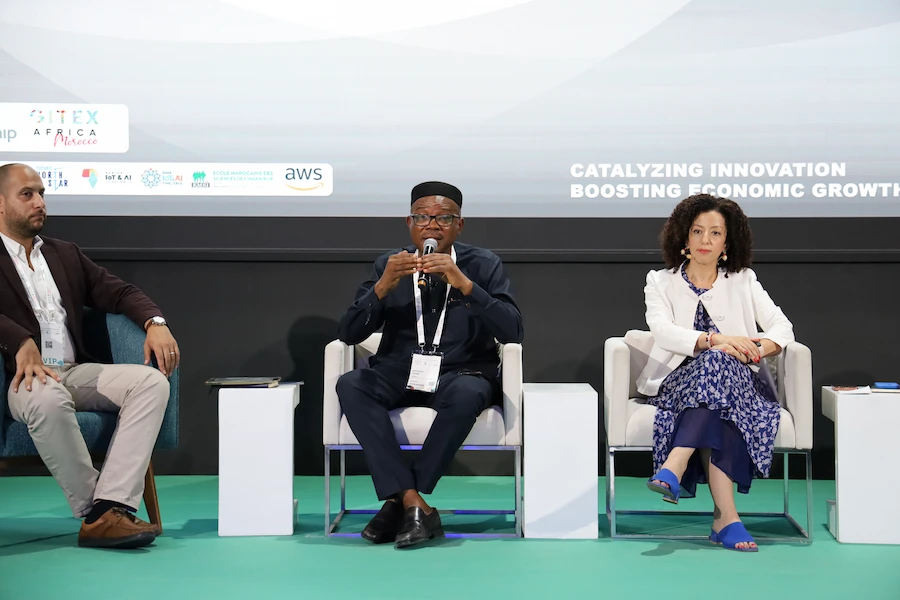
11:00 am –
11:15 am
Smart Cities as Drivers of Sustainable Development in Africa

H.E. Dr. Edward A. Christow
UNDP Resident Representative in Morocco
11:15 am –
11:30 am
Opening Speech

Dr. Antonio Luque
Associate Professor, University of Seville, Spain | IEEE R8 Past Director
11:30 am –
11:45 am
Opening Speech

Dr. Mohamed Essaaidi
General Co-Chair of IEEE SCFS
11:45 am –
12:45 pm
Networking Break
11:45 am –
12:10 pm
Decoding Brahmam

Mr. Sampath Kumar Veeraraghavan
President, Brahmam Innovations
12:10 pm –
12:45 pm
Delivering Transformational Global Social Innovation Programs Using Emerging Technologies

Dr. Abdelilah Kadili
President, Tamkine Foundation, Morocco

Dr. Mohammed El Kayyali
President, USA, International Federation of Global and Green Information Communication Technology (IFGICT)

Eng. Mohamed Aboud
VP for Membership Development and Marketing, IEEE TEMS

Dr. Mohamed Essaaidi
Global Chair, IEEE SIGHT | EMSI, Morocco

Mr. Sampath Kumar Veeraraghavan
President, Brahmam Innovations
12:45 pm –
02:45 pm
Technical Session #1
Session Chairs:

Dr. Mohamed Bakhouya
Professor, International University of Rabat, Morocco
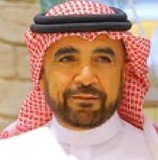
Dr. Sultan Al Sultan
CEO, Environmental Center Of Remote Sensing, Ryiadh, KS
12:45 – 01:05 :
SCF-01 The Smart-City Caravan: Living Labs on the Go, Leaving No One Behind
Mahir Chekkouri (UNDP, Morocco); Antonio J. Jara (Research and Development Department Libelium Murcia, Spain)
01:05 – 01:25 :
SCF-02 – Smart Districts as Key Elements of Livable and Sustainable Smart Cities
Alexander Viehl, Jana Deckers, Fabian Kern and Anna Soßdorf (FZI Research Center for Information Technology, Germany); Benjamin Zeilfelder (FZI Forschungszentrum Informatik, Germany); Ömer Şahin Taş (Karlsruhe Institute of Technology (KIT) & FZI Research Center for Information Technology, Germany); Rüdiger Dillmann (Forschungszentrum Informatik, Germany)
01:25 – 01:45 :
SCF-03 – The Integration of Two Smarts in the Era of Industry 4.0: Smart Factory and Smart City
Mutaz Ryalat, Mohammad Almohammadi and Natheer Almtireen (German Jordanian University, Jordan); Hisham Elmoaqet (Germam Jordanian University, Jordan)
01:45 – 02:05 :
SCF-04 – Optimal Planning for On-Route Charging of Battery Electric Buses in Public Transit Networks
Ehsan Sobhani, Abdulsalam Yassine and Amir Ameli (Lakehead University, Canada); Shahin Riahinia (Sharif University, Iran)
02:05 – 02:25 :
SCF-05 – ChirpPark: A Smart and Sustainable Parking System Protocol for Smart Cities and Multi-Agent Vehicles
Giovanni Campo, Fabrizio Cipria, Miriana Russo, Corrado Santoro and Federico Fausto Santoro (University of Catania, Italy)
02:25 – 02:45 :
SCF-06 – CyberSecurity Resilience Act (CRA) in Practice for IoT Devices: Getting Ready for the NIS2
02:45 pm –
04:45 pm
Technical Session #2 – Virtual
Session Chairs:

Dr. Mohamed Bakhouya
Professor, International University of Rabat, Morocco

Dr. Sultan Al Sultan
CEO, Environmental Center Of Remote Sensing, Ryiadh, KS
02:45 – 03:05 :
SCF-07 – Optimization of the Performance of the Alibori Medium Voltage Electricity Network (Benin) Through Preventive Maintenance of the Power System
Cossi Télesphore Nounangnonhou and Arouna Olouladé (University of Abomey-Calavi, Benin); Maurel Richy Azagnandji (National University of Agriculture, Benin); Lamidi Taohidi Alamou (EPAC-UAC, Benin); Guy Clarence Sêmassou (University of Abomey-Calavi, Benin); François Xavier Nicolas Fifatin (01 BP 4844 Cotonou & Université d’Abomey-Calavi, Benin)
03:05 – 03:25 :
SCF-08 – MobiAlert: A Data-Driven Embedded System Approach to Enhance Safety for Cyclists
José Miguel Ferreira (University of Porto & FEUP University, Portugal); João Carlos N Bittencourt (University of Porto, Portugal & Federal University of Recôncavo Da Bahia, Brazil); Daniel G. Costa (University of Porto, Portugal)
03:25 – 03:45 :
SCF-09 – An Experimental Hybrid Modelling Approach in Urban Energy Optimization: A Case Study in South Italy
Amro Issam Hamed Attia Ramadan (University of Salento & Leibniz Institute of Ecological Urban and Regional Development, Italy); Sujit Kumar Sikder and Martin Behnisch (Leibniz Institute of Ecological Urban and Regional Development, Germany); Antonio Leone and Antonella Longo (University of Salento, Italy)
03:45 – 04:05 :
SCF-10 – Smart Cities for Equitable Societies: Promoting Digital Equality, Trust, and Ethical Governance
04:45 pm –
04:55 pm
Poster Session – Virtual
Session Chairs:

Dr. Mohamed Bakhouya
Professor, International University of Rabat, Morocco

Dr. Sultan Al Sultan
CEO, Environmental Center Of Remote Sensing, Ryiadh, KS
04:15 – 04:25 :
SCF-11 – Integration of Advanced Filtration and Conversion Technologies for Air Quality Improvement in Smart Cities
10:00 am –
10:30 am
The New Internet based on IPv6 empowering Smart Cities with Emerging Technologies
The IPv6 Deployment worldwide is becoming a reality now with some countries achieving more than 60% user penetration with France (75%), Belgium (65%), USA (50%) and India (68%) at the top ranking (http://6lab.cisco.com/stats/) and reaching double digits v6 coverage on Google IPv6 stats. May Autonomous Networks (ASN) reach more than 90% with v6 preferred or v6 capable:
(http://labs.apnic.net/ipv6-measurement/Economies/US/). Over 2.5 Billion users are accessing Internet over IPv6 and probably not even knowing it. If this trend continues, we should achieve 90% by 2025 which would be the inflection point when the full roll-out of IPv6 becomes a strategic plumbing decision of the networks to move to IPv6-Only and start sunsetting IPv4 from the Internet. The US Government has already set some dates to move to IPv6-Only by 2025.
New topics are more on the lime light such as 5G/6G, Web3, Cloud Computing, Internet of Things, AI, Blockchain. However, these fields are taking IP networking for granted designing them on IPv4/NAT building non-scalable and non-end to end solutions:
Web3: Web3, also known as the decentralized web, is an evolving concept that aims to reshape the internet by incorporating decentralized technologies, such as blockchain and peer-to-peer networks. Unlike the traditional web (Web2), Web3 focuses on giving users more control over their data, eliminating intermediaries, and enabling direct peer-to-peer interactions. It empowers individuals and promotes a more open and transparent online ecosystem.
IPv6 based 5G/6G: By leveraging IPv6, these next-generation networks enable faster speeds, lower latency, and increased capacity to support the growing number of connected devices and emerging technologies.
Cloud Computing: IPv6-based cloud computing offers a larger address space, enables direct communication between cloud resources, simplifies auto-configuration, enhances security, promotes interoperability, and provides future-proofing capabilities. By leveraging IPv6, organizations can build scalable and secure cloud infrastructures that meet the growing demands of modern applications and services in a rapidly evolving digital landscape.
Internet of Things (IoT): IPv6 is essential for the expansion of IoT by offering a larger address space, scalability, simplified configuration, enhanced security, improved QoS, and future-proofing. Its adoption and integration with IoT networks enable the seamless connection, communication, and management of a massive number of IoT devices, facilitating the growth and potential of the IoT ecosystem.
Artificial Intelligence (AI): the direct relationship between AI and IPv6 is primarily related to networking and infrastructure considerations. AI itself focuses on the development of algorithms, models, and techniques to process data and perform intelligent tasks. However, the adoption of IPv6 can provide the necessary foundation and scalability to support the growth and integration of AI technologies within the broader digital ecosystem.
Blockchain: By incorporating IPv6 addresses into a blockchain network, several advantages can be achieved: Enhanced scalability: IPv6 provides a significantly larger address space compared to IPv4, allowing for a higher number of nodes in the network. This scalability can facilitate the growth and expansion of the blockchain network. Improved connectivity: IPv6 offers better connectivity options, especially for devices that are part of the Internet of Things (IoT). With the increasing number of IoT devices expected to connect to blockchain networks, IPv6 can ensure seamless communication and integration. Address exhaustion prevention: IPv4 addresses have been running out due to the explosive growth of the internet. IPv6, with its vast address space, helps mitigate the issue of address exhaustion, ensuring that the blockchain network can continue to operate without running out of unique IP addresses. Simplified network configuration: IPv6 simplifies network configuration processes by eliminating the need for techniques like Network Address Translation (NAT). This simplification can contribute to easier deployment and management of blockchain nodes.
The IPv6 Forum is driving new initiatives to garner support and create awareness in these areas: www.ipv6forum.org.
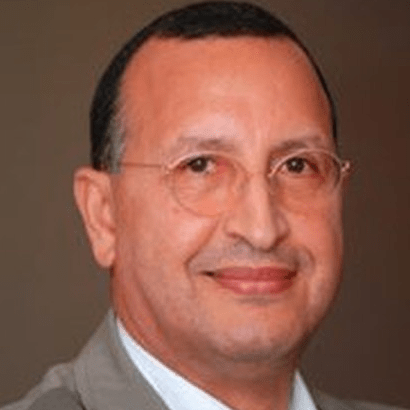
Dr. Latif Ladid
Founder and President, IPv6 Forum
11:00 am –
11:45 am
Emerging Technologies Transforming African Cities
11:45 am-
02:05 pm
Technical Session #3
Session Chair:
11:45 – 12:05 :
SCF-12 – Smart City Connectivity: Integrating LEO Satellites With 5G/6G for IoT and PV Monitoring
Ali Bostani (American University of Kuwait & Microwavesoft, Canada); Amir Baniamerian (Concordia University, Canada); Ashraf A Zaher (German International University, Egypt); Mohammad Alshammari (MicrowaveSoft, Kuwait)
12:05 – 12:25 :
SCF-13 – Optimal Planning for Off-Service Charging of Electric Public Transit Networks
Ehsan Sobhani, Abdulsalam Yassine and Amir Ameli (Lakehead University, Canada); Shahin Riahinia (Sharif University, Iran)
12:25 – 12:45 :
SCF-14 – Potential of Indoor Farming for Urban Consumers in the Philippines
Geraurd Josh M. Angeles (Philippines); Veronica Anne N. Buenaventura, Diony Jhen Y Oguing, Lead A Canada and Marianito P Gallego, Jr. (Polytechnic University of the Philippines, Philippines)
12:45 – 01:05 :
SCF-15 – 6G IoT: A Vision for AI-Enabled Sustainable Data Processing and Visualization in Mixed Reality
Ghazanfar Latif (Prince Mohammad bin Fahd University, Saudi Arabia)
12:45 – 01:05 :
SCF-16 – Addressing Challenges and Opportunities in Data Sharing for the Common Good: The Case of Europe’s First Data Altruism Organisation
Vladimir Estivill and Manuel Portela (Universitat Pompeu Fabra, Spain); Giovanni Maccani (Ideas for Change, Spain)
01:05 – 01:25 :
SCF-17 – Earth Observation Satellite Data-Based Service Supporting City Heat Mitigation Actions
Guy Perez (OHB France & OHB SE, France); Anita Bayer, Marco Spagnolli and Stephan Holsten (OHB System, Germany)
01:25 – 01:45 :
SCF-18 – Arabic Offense Text Detection in Social Networks Using Collaborative Machine Learning
02:05 pm-
02:15 pm
Africa IoT & AI Challenge – Final Pitching
10:00 am –
11:00 am
Fostering Cybersecurity Innovation: Challenges and Strategies for Local Product Development in Africa

Dr. Ahmed Abdelhafez
Vice President, Cybersecurity Affairs, National Telecommunication Regulatory Authority NTRA, Egypt
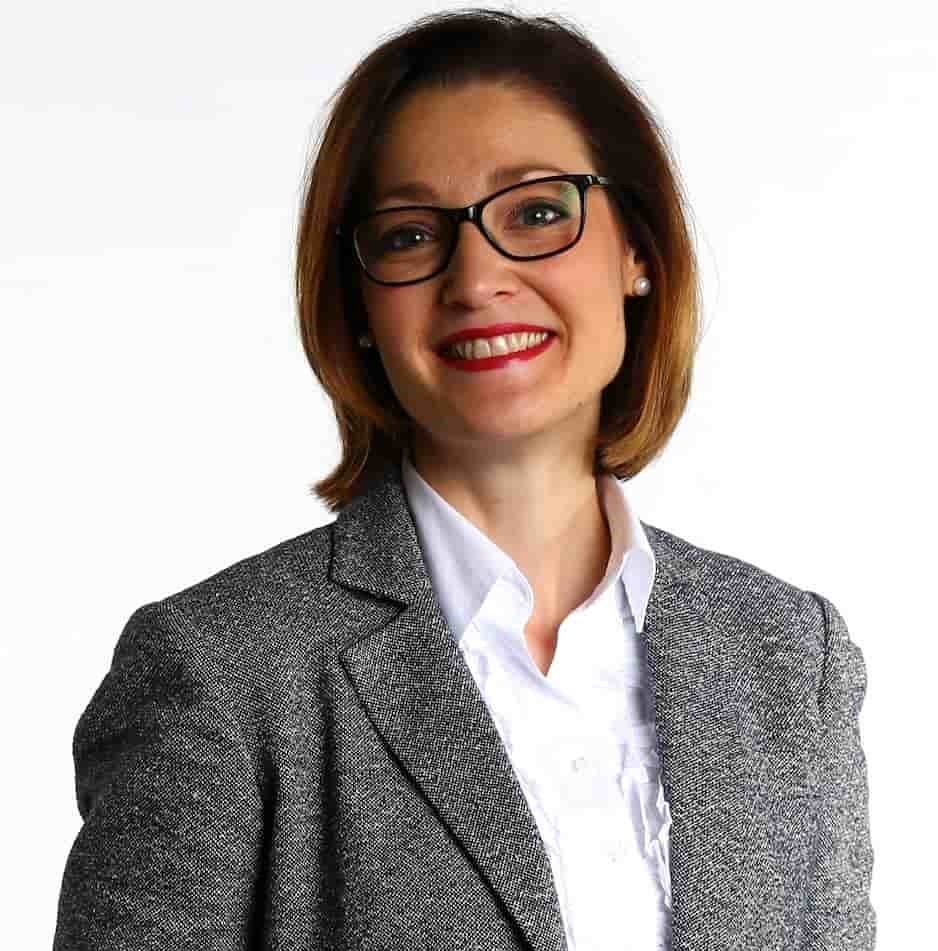
Dr. Robyn Virginia Remke
Director of Higher Education, Templar Executives, UK

Panel Moderator: Eng. Ahmed Sedky
Managing Partner, Significa Ventures, Egypt
11:00 am –
12:00 pm
Sustainable Urban Mobility: Innovations in Transportation for Smart Cities

Dr. Mohamed Essaaidi
Global Chair, IEEE SIGHT | EMSI, Morocco
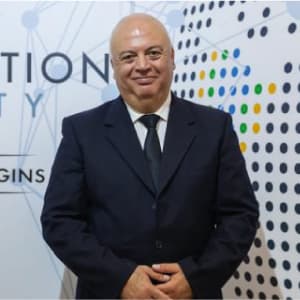
Mr. Hichem Turki
CEO, Novation City, Tunisia
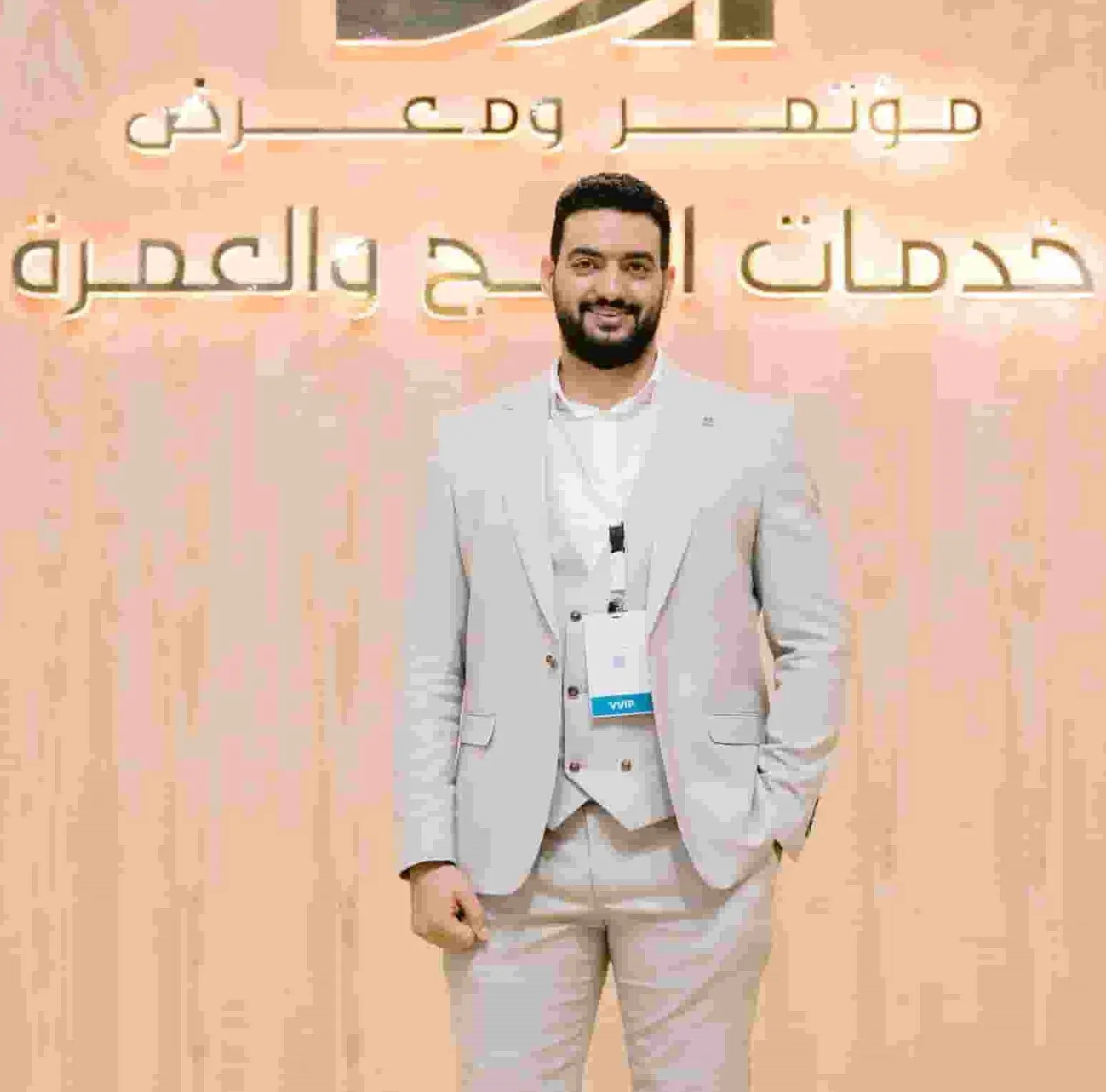
Mr. Ahmed Abo Elmagd
Project Manager, Global Innovation & Entrepreneurship Company
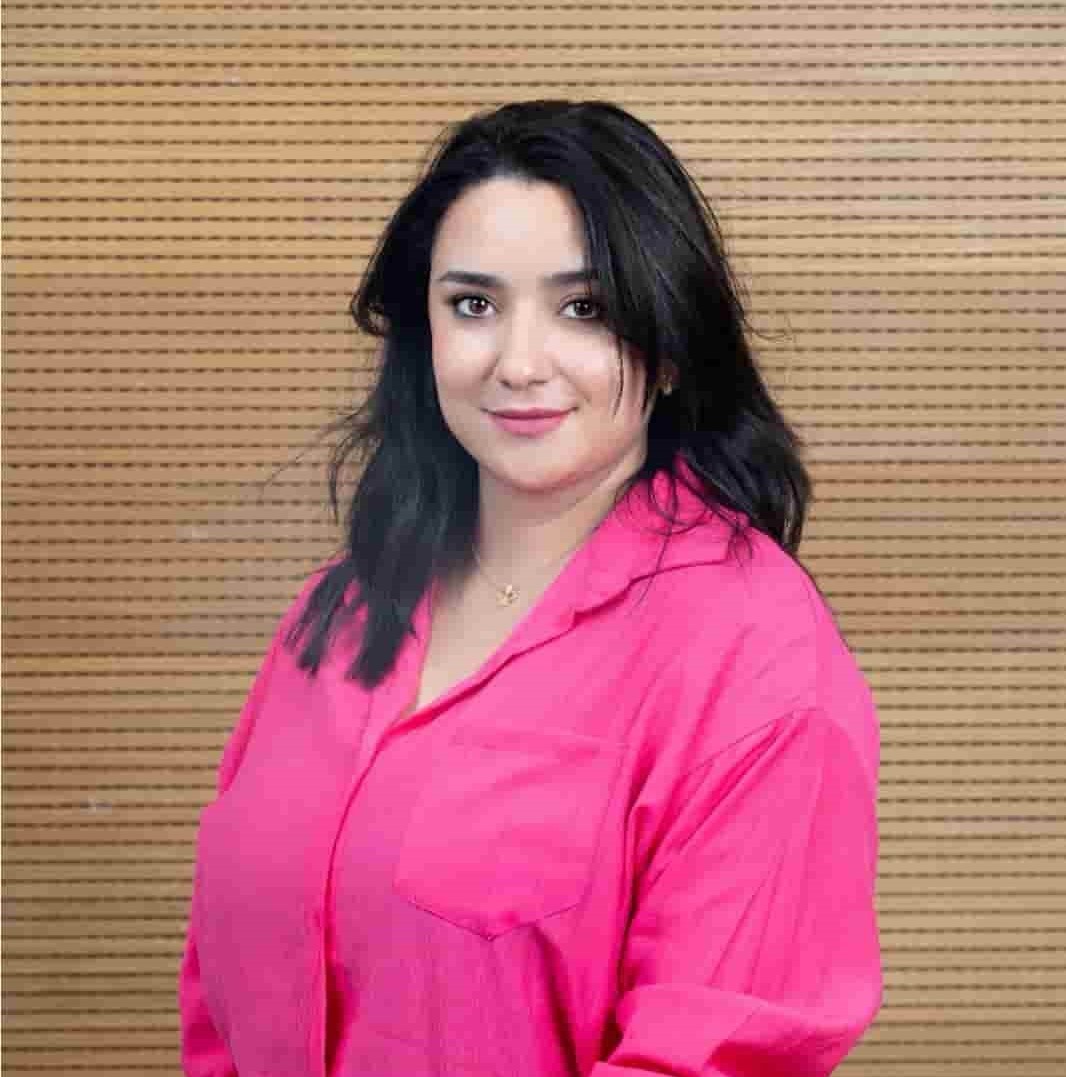
Panel Moderator: Ms. Majda Bajji
Account Enrollment Lead
12:00 pm –
01:00 pm
Resilient Infrastructure: Building Robust Systems for Future Cities
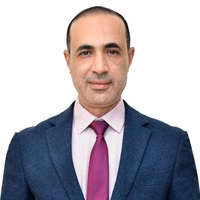
Dr. Fadel Daigham
National Telecom Regulatory Authority of Egypt (NTRA), Egypt | Chair of “Digital Transformation “ Study Group, Development Sector, ITU

Dr. Adel Smeda
Professor, Expert in Sciences and Technology, ICESCO, Morocco

Dr. Iris Cuevas Martinez
Head of Laboratory, Libelium Lab, Spain
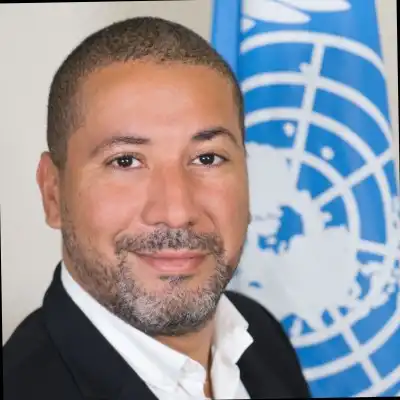
Eng. Omar Agodim
Head of Experimentation, UNDP Morocco Accelerator Lab
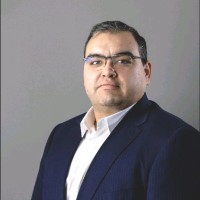
Panel Moderator: Dr. Antonio J. Jara
General Manager Smart Cities, Libelium, Spain
01:00 am –
01:25 pm
Delivering high-impactful IEEE Humanitarian Technology Programs through Partnership

Mr. Sampath Kumar Veeraraghavan
Global President, 2023 IEEE Eta Kappa Nu | 2023 IEEE HTB Partnership Chair
01:00 pm –
01:30 pm
Coffee break with networking
01:30 pm –
02:15 pm
Smart Energy Solutions: Advancing Sustainable Power Systems IoT and Predictive Analytics Perspectives

Dr. Mohamed Bakhouya
Professor, International University of Rabat, Morocco
02:15 pm –
03:15 pm
Citizen Engagement and Participation: Smart City Governance

Dr. Eesa M. Al Bastaki
President, University of Dubai, UAE
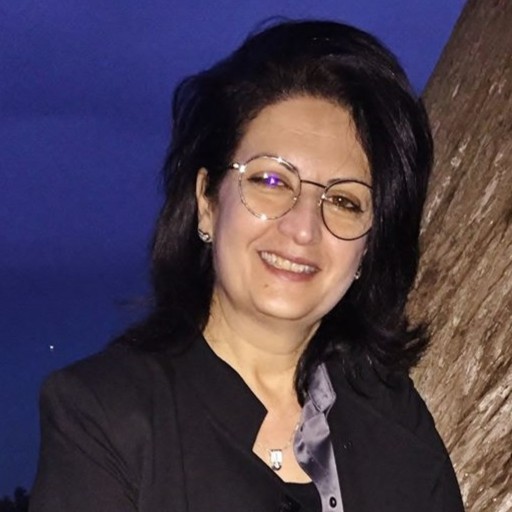
Dr. Ilhem Kallel
Professor, University of Sfax, Tunisia

Dr. Vincent kaabunga
CEO, Marketplace Technologies, Uganda

Panel Moderator: Mr. Fahd Maatoug
Career Consultant, Ecole Marocaine des Sciences de l’ingénieur, Morocco
03:15 pm –
04:15 pm
Data-driven Decision Making: Leveraging Big Data for Urban Planning
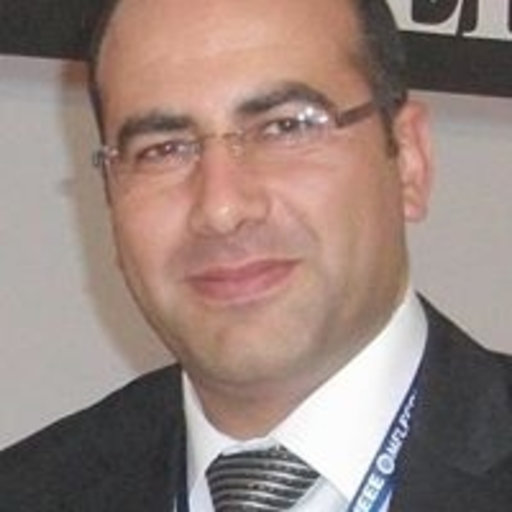
Dr. Habib Kammoun
IEEE Africa and Middle East zone Representative | Head of Computer Science Dept, University of Sfax, Tunisia
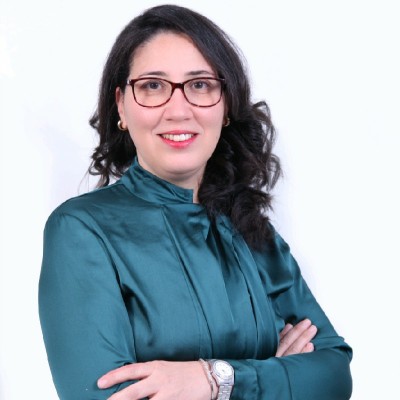
Dr. Houda Chakiri
Assistant Professor, Al Akhawayn University, Morocco

Dr. Sultan Al Sultan
CEO, Environmental Center Of Remote Sensing, Ryiadh, KSA

Panel Moderator: Mr. Karim Kharrat
CEO & Chairman, Be Wireless Solutions, Tunisia
